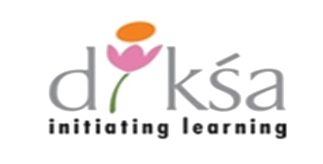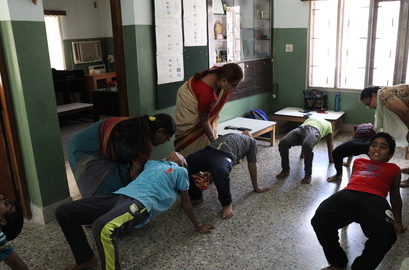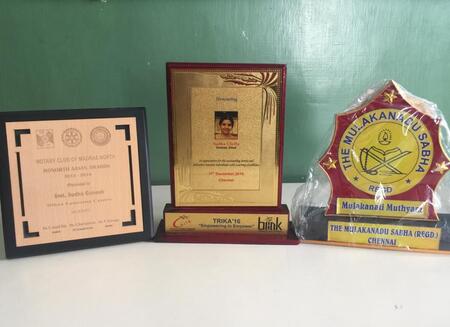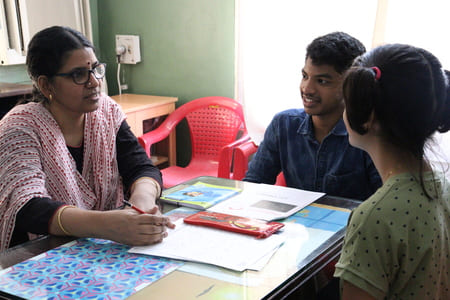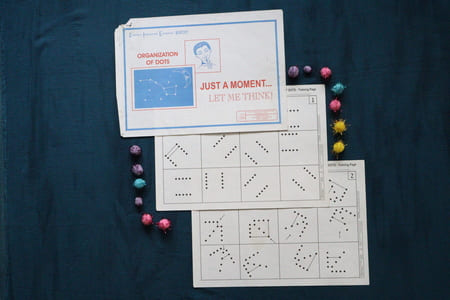As every professional field matures and gathers new knowledge, methods, specializations and disciplines, it becomes necessary to create a new taxonomy (a system of classification) or revisit the existing system of taxonomy to code and classify our emerging understanding.
Such a system of classification helps practitioners and lay persons sort and place into groups what they know using meaningful labels so that it can be searched and accessed easily.
Learning disabilities (LD) as an umbrella term has existed for decades to describe the field. While it was well understood that it was an umbrella term, its most popular constituent namely dyslexia came to be used interchangeably with the term LD. While these labels served a general purpose for a period of time, the field has evolved and uncovered new facets like dysgraphia, dyscalculia and so on. Parents and students meanwhile are also beginning to experience a certain level of stigma associated with the term ‘disabilities’ in LD.
While the discomfort with the term disabilities grows, advances in the field of neurosciences are also beginning to shine the spot light on what ‘learning’ really means.
All of this seems to indicate that there is an urgent need to press the reset button and use our emerging insights to come up with a more contemporary and inclusive system of taxonomy that takes on board the sentiments as well as developments. Attempting that is indeed the purpose of this article.
What is learning?
A good place to start this discussion is by trying to define learning. An informal poll indicates a range of practical definitions for learning:
Those we spoke to define learning as understanding, relating, making connections between prior and new knowledge, independent and critical thinking, applying existing knowledge to new contexts, acquiring a skill, a behaviour, values and preferences.
It is a natural phenomenon innate in both humans and animals. Traditions and customs, ethics and values, aesthetics and appreciation, attitudes and beliefs develop through learning.It is a life-long process and is the basis of maturation.
Our entire personality is influenced by learning, for as we experience we learn, and as we learn we evolve. To that extent some define it as growth and progressive change.
What are disabilities?
The Merriam Webster’s dictionary defines disability as a physical, mental, cognitive or developmental condition that impairs, interferes with or limits a person’s ability to engage in certain tasks or actions or participate in typical daily activities and interactions.
What is Learning disability?
LD is defined as any of the various conditions (such as dyslexia or dysgraphia) that interferes with an individual’s ability to learn and so result in impaired functioning in language, reasoning or academic skills (such as reading, writing and math) and that are thought to be caused by difficulties in processing and integrating information.
What are Disabilities?
Given these popular definitions, it becomes necessary to challenge the use of the term ‘disability’. If we are comfortable with the above definition of learning and the prevailing evidence of so called people with LD who have successfully overcome these challenges is overwhelming, it points to the possibility that disability is not the appropriate term.
Specific Learning Disability (SLD)
For a long time the term LD was used synonymously with dyslexia (difficulty with language processing).
As new dimensions of so called disabilities were discovered and added to the taxonomy, many practitioners saw the need to be much more specific and preferred to use the term SLD and this found its way into the taxonomy. For example dyscalculia or dysgraphia is one form of SLD just like dyslexia is.
While specific learning disability was one spent in the right direction, it still had the stigma of the term disability and does not give neither the teacher nor the parent any optimism.
I find the term Specific Learning Difficulty (rather than disability) much more acceptable than the term LD or SLD because it does two progressive things:
-
- It merely calls it a difficulty
- It isolates the specific need
Separating learning from disabilities – towards a new taxonomy
My clarion call is that learning is so innate to any human being that you cannot use a broad brush label like learning disability to describe any person, despite the difficulties he or she might experience.A look at famous personalities who were labelled as LD proves our point – Albert Einstein, Walt Disney, Richard Branson, Whoopi Goldberg, Steven Spielberg.Many of my own students have become successful entrepreneurs, engineers, artists, medical professionals, architects, designers, chefs and so on. All of them unfortunately came to me with the label of being LD.
My plea
It has been my experience that learning is an ability and it does coexist with specific learning difficulties in a few areas.
My recommendation is to therefore use the term Specific Learning Difficulties. (Dyslexia, Dyscalculia, Dysgraphia and so on).Everyone has a capacity to learn while experiencing one or two areas of difficulty. Such a mind-set will help us to preserve the esteem of every learner and yet support him in the specific area of difficulty and helping him overcome the same.
The benefit of such a refined taxonomy is that we will acknowledge every person as a learner while recognising their specific difficulties that need to be addressed.Umbrella terms like LD and SLD have perhaps outlived their utility, given emerging insights.
Taxonomies can sometimes be seen as mere terms and this discussion dismissed as unnecessary.
However, the language we use defines our world views, our attitudes and of course our actions. Indeed, the language we use creates our reality – words create worlds!
-Mrs. Sudha Ganesh Chella
